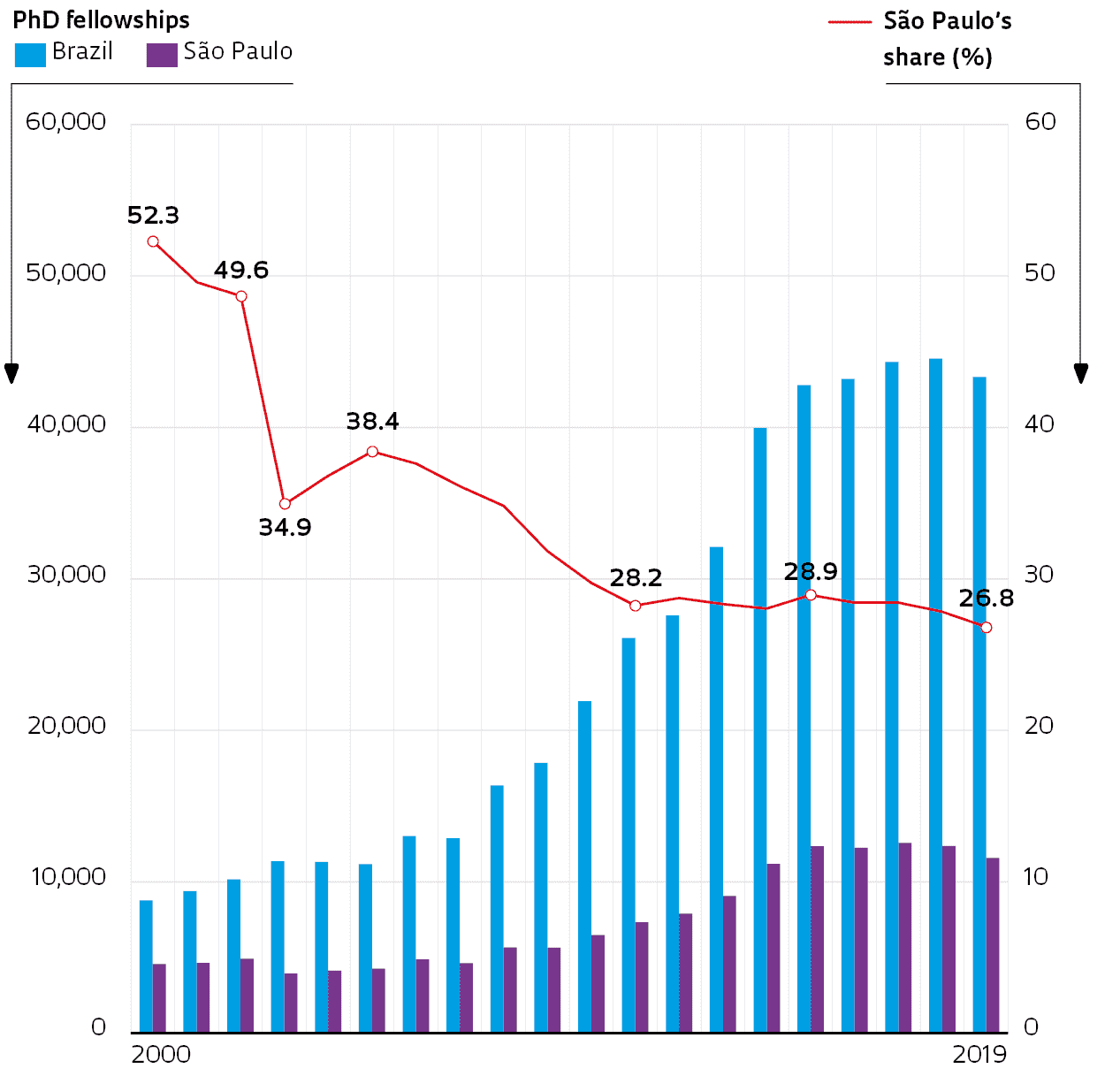- The number of doctoral fellowships awarded by CAPES1, which quintupled from 8,801 to 44,530 between 2000 and 2018, fell to 43,327 (-2.7%) in 2019, the first drop since 2007
- In São Paulo specifically, the decline was greater and has been falling since 2017, when the number of fellowships peaked at 12,595. In 2018, 12,384 fellowships were funded by CAPES in the state, down to 11,605 in 2019, with a total reduction of 7.9% between 2017 and 2019.
- São Paulo’s share of the nationwide total, which was more than 50% at the turn of the century, dropped to below 40% in 2003 and then to less than 30% in 2010. Since then, the figure has remained at around 28%
Doctoral fellowships funded by CAPES, Brazil, and São Paulo. São Paulo as a percentage. 2000–2019

São Paulo remains the leading state for fellowships, students, and PhDs awarded
- In 2019, more than twice as many CAPES PhD fellowships were granted in São Paulo (11,605) than the next state, Rio de Janeiro (5,197)
- CAPES fellowships in São Paulo accounted for 29% of all PhD students enrolled in the state, at 40,010 in 2019, close to the national average of 30%2
- The state is home to 28% of all PhD students in Brazil (142,375), and the number of PhDs awarded (7,257) represents 30% of the nation’s total (24,280) in 2019

Notes (1) Full PhD fellowships ongoing in the reference year, counted by the annual total (2) These percentages should not be considered as the exact percentage of students awarded a fellowship by CAPES, since fellowships are counted annually. The same fellowship may have been granted to more than one student, for example when a student completes their PhD and their fellowship is transferred to another student. However, they are indicative of the coverage of CAPES PhD fellowships.
SOURCES GEOCAPES/CAPES/MEC. PREPARED BY: THE FAPESP STUDIES AND INDICATORS TEAM (DPCTA)
Republish